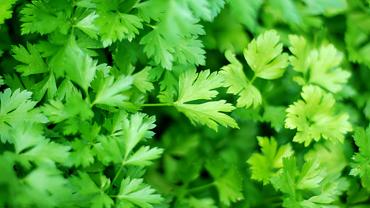
Lovage (Levisticum officinale) is a botanical in the Apiaceae family and a relative of celery and parsley. Culinary use of lovage in some areas of the world include parts of Europe, where its leaves are used in soups and stews. The seeds from lovage are also used as a spice for both cooking and pickling. Lovage also contains many bioactive components, and it is used in certain ways to support human health.
Some components of lovage include phenolic acids, flavonoids, tannins, curcuminoids, coumarins, quinones, and lignans. Phenolic compounds have been shown to support the body’s response to inflammation. These compounds may also support a normal response to oxidative stress. Lovage and its components, such as phenolic acids, may also modulate the activity of lipoxygenase and cyclooxygenase, two pro-oxidative enzymes associated with the metabolism of arachidonic acid.
Certain metabolites called phthalides have been isolated from the root of lovage. Phthalides have been shown to support human health in a variety of ways. Phthalides may support cardiovascular health and the body’s response to inflammation and certain bacteria. In a laboratory study, the activity of certain phthalide extracts from L. officinale were investigated in the presence of certain bacteria. The study results indicated that activity was present against certain gram-negative bacteria, which included Escherichia coli, Pseudomonas aeruginosa, and certain gram-positive bacteria, such as Staphylococcus aureus. Of the extracts studied, the authors report that 7-hydroxybutylidene phthalide showed the most promise for future studies.
The root of lovage has also been traditionally used for its support in urinary health. Its primary bioactive components include coumarins and terpenoids. Lovage may support a healthy muscular response to spasms and act as a diuretic. It also may provide support for a normal response to certain bacteria in the urinary tract.
An animal study investigated the efficacy of extracts from L. officinale in murine populations exposed to paraquat, an herbicide used commercially for weed control. Paraquat is mostly metabolized in the liver. Therefore, liver cells called hepatocytes were assessed for oxidative stress. When hepatocytes are exposed to oxidative agents, they undergo many changes, including cell membrane damage through peroxidation of unsaturated fatty acids. The study results indicated that supplementation with L. officinale extracts attenuated paraquat-related oxidative stress in hepatocytes.
Lovage is a plant with both culinary and medicinal applications. It may support urinary health, which is a normal response to certain bacteria, and it may act as a diuretic. Lovage may also support the body’s response to oxidative stress and inflammation.
By Colleen Ambrose, ND, MAT